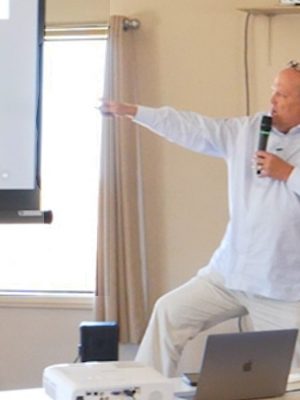US Farmers Recoup $1.51 Billion in Syngenta Corn Litigation

The mission of Watts Law Firm LLP is to empower those who are voiceless, and to use the power of the law to bring justice to people who are in an uphill battle they cannot fight on their own. This was the case when independent farmers across the Midwest lost over a billion dollars as a direct result of negligence and greed by the world’s largest seed supplier. Syngenta is based in Basel, Switzerland, with a net worth over $32 billion, and its sales exceed $14 billion per year.
Background: Independent US Farmers Originally Left Holding the Bag
Syngenta produces different types of genetically modified corn seed, and two new strains came out in 2009, labeled as Agrisure Viptera and Duracade. Both strains had a new trait called MIR162 that protects against pests such as earworms, cutworms, armyworms and corn borers, and Duracade also protected against corn rootworm. These two strains were approved in the US for sale in 2011, but they had not yet been approved for import into China.
When Syngenta had a business decision to prematurely market its seed for early sales, it did not hesitate to move forward despite the foreseeable risk to the United States export market. It decided to sell its new seed traits at the earliest possible time, regardless of the risks of harm to their own customers and other farmers who rely on the export market to maintain United States corn prices. Syngenta decided to put corn farmers’ livelihoods on the line for their own financial gain.
Syngenta knew the Chinese government would reject the unapproved strains of GMO corn as they had not yet approved the strains, and it knew that most of the corn grown by US farmers is for export into China. Yet, it heavily marketed its seeds to US farmers who exported to China for its own profit at the expense of their own customers. The US farmers bought the seeds and planted them as part of the 2011 growing season. As nature would have it, the GMO corn seed, even when sold segregated, found its way into other corn types due to natural cross-pollination and mingling during transportation.
When this corn was attempted to be exported in the usual course of business, China detected small amounts of the GMO corn that had not yet been approved for export. When China discovered the rogue strain in November 2013, it immediately rejected American corn cargo, shutting down the Chinese market for US corn. The price dropped precipitously from $7.00/bushel in 2013 to $3.25/bushel in 2014 as a result of Syngenta’s actions.
In the end, US farmers lost over a billion dollars and were left holding an empty bag.
MultiDistrict Litigation: Farmers Band Together to for a United Front to Recoup Losses
Corporate giant Syngenta not only has extensive power and resources, but as the largest seed provider worldwide, it is a sophisticated player in the agricultural global market. Syngenta did not market and sell the seeds to US farmers in a vacuum, as it was aware of the Chinese government lagging behind the US to approve the seed strains. It marketed it to US farmers anyway, risking their futures, even though it is a common and foreseeable consequence that the GMO corn would end up, at least in small part, as part of the crops exported to China worth billions of dollars.
The independent and family farmers felt powerless on their own. The vast majority of the farmers whose corn was rejected did not even purchase or grow either strain of the GMO corn. How can an independent farmer in the United States go up against the largest seed supplier in the world – especially when that farmer did not even purchase that seed strain?
Mikal C. Watts of his predecessor law firm represented over 50,000 farmers across the United States to recoup their losses after Syngenta knowingly and negligently pushed corn seed that was not approved by the Chinese government on US farmers. They knew or should have known that despite segregating out the GMO seed, it would get cross-pollinated by third party vendors and also naturally once planted. They knew or should have known that the corn would have been rejected by China, resulting in catastrophic losses for the individual farmers.
Multidistrict litigation (MDL), also known as mass tort litigation, is not the same as a class action lawsuit. In an MDL, individual claims by each farmer had its own independent case. When there are many independent cases based on the same set of facts, the courts consolidate similar cases across multiple jurisdictions into one centralized court. This way, all the plaintiffs can prove liability of the defendant in one large action. This means the litigation is more efficient and will save costs for each plaintiff, as the defendant Syngenta can produce discovery that goes to all the thousands of plaintiffs, that the pre-trial motions can be done all in one action.
In an MDL, what is referred to as a bellwether case, is then tried before a jury to prove liability of the defendant. If the defendant corporation is found liable in the bellwether case, it typically will then settle all the cases to save itself the additional litigation expenses of fighting losing battles over similar claims. Once liability is proven in the bellwether case, the members of the group can have distinct and independent claims for damages that reflect their unique circumstances. This is what happened here.
Bellwether Case Leads to $1.51 Billion Settlement for Affected Farmers
In 2017, the bellwether case In Re Syngenta AG MIR162 Corn Litigation was tried before a jury in Kansas. The judge acknowledged the case as presenting “unique and challenging legal and factual dilemmas,” marking the first instance of a GMO product sanctioned for sale in the U.S., coupled with an “unprecedented” responsibility for its commercialization prior to obtaining foreign import consent. The jury verdict from this case was a significant blow to Syngenta, finding them negligent for hastily pushing the GMO seed to market while undermining the critical importance of Chinese regulatory approval. This negligence resulted in a jury verdict of $217.7 million in compensatory damages.
This was an important first step in the litigation and to obtain the necessary loss recuperation for some of the farmers, but there was much more to come. Following the bellwether’s resounding verdict, the overseeing judge of the Kansas MDL, US District Judge John W. Lungstrum, initiated a settlement negotiation committee consisting of four attorneys: Mikal C. Watts, Christopher A. Seeger of Seeger Weiss, Clayton A. Clark of Clark Love & Hutson GP and Daniel E. Gustafson of Gustafson Gluek PLLC. “The court’s judgment is that the plaintiffs’ settlement negotiation committee appropriately balances the goals of representing the interests of different groups of producer plaintiffs while maintaining a workably sized group to conduct settlement negotiations,” Judge Lungstrum said.
Empower Your Fire Claim
The Result? The Largest Agricultural Litigation Settlement in US History
After tireless efforts, Mikal and the settlement negotiation committee engaged in mediation with Syngenta, determined to achieve justice for the multitude of farmers wronged. Their efforts bore fruit when an agreement was reached that encompassed not only the corn growers, but also grain facilities and ethanol plants nationwide that had bought Syngenta’s insect-resistant GMO corn seeds during the stipulated time period. The figure on the settlement papers was a staggering $1.51 billion, making history as the most substantial agricultural litigation settlement ever seen in the US. This settlement resolved thousands of pending cases against Syngenta.
These funds didn’t just remain numbers on paper. They were meticulously divided amongst the affected parties, and the court ordered certain sums to be paid as attorney fees pursuant to law. The sum awarded to each claimant differed based on their specific farming, grain handling, or ethanol production activities, and ascertained through a claims procedure. After allocations were carefully determined, the amounts were secured in a trust account. The court then oversaw and ratified these claims, ensuring payouts reached those who had borne the brunt of Syngenta’s missteps. The farmers and other affected plaintiffs received their payouts in 2020.
The Syngenta Corn Litigation stands tall as more than just a legal battle. It is an emblematic testament to the resilience and determination of US farmers. It underscores the dangers of global agricultural giants cavalierly sidestepping international regulations, prioritizing profit over the livelihoods of countless independent farmers. More than anything, it serves as a stark reminder to the corporate world that when the stakes involve the well-being and livelihoods of those who are responsible for our global food supply, Watts Law Firm LLP will support American farmers who will rise, unified, to challenge any force that threatens their sustenance.

Mikal Watts
Mikal C. Watts is Board-Certified in Personal Injury Trial Law by the Texas Board of Legal Specialization and is a Martindale-Hubbel AV Rated Lawyer.



